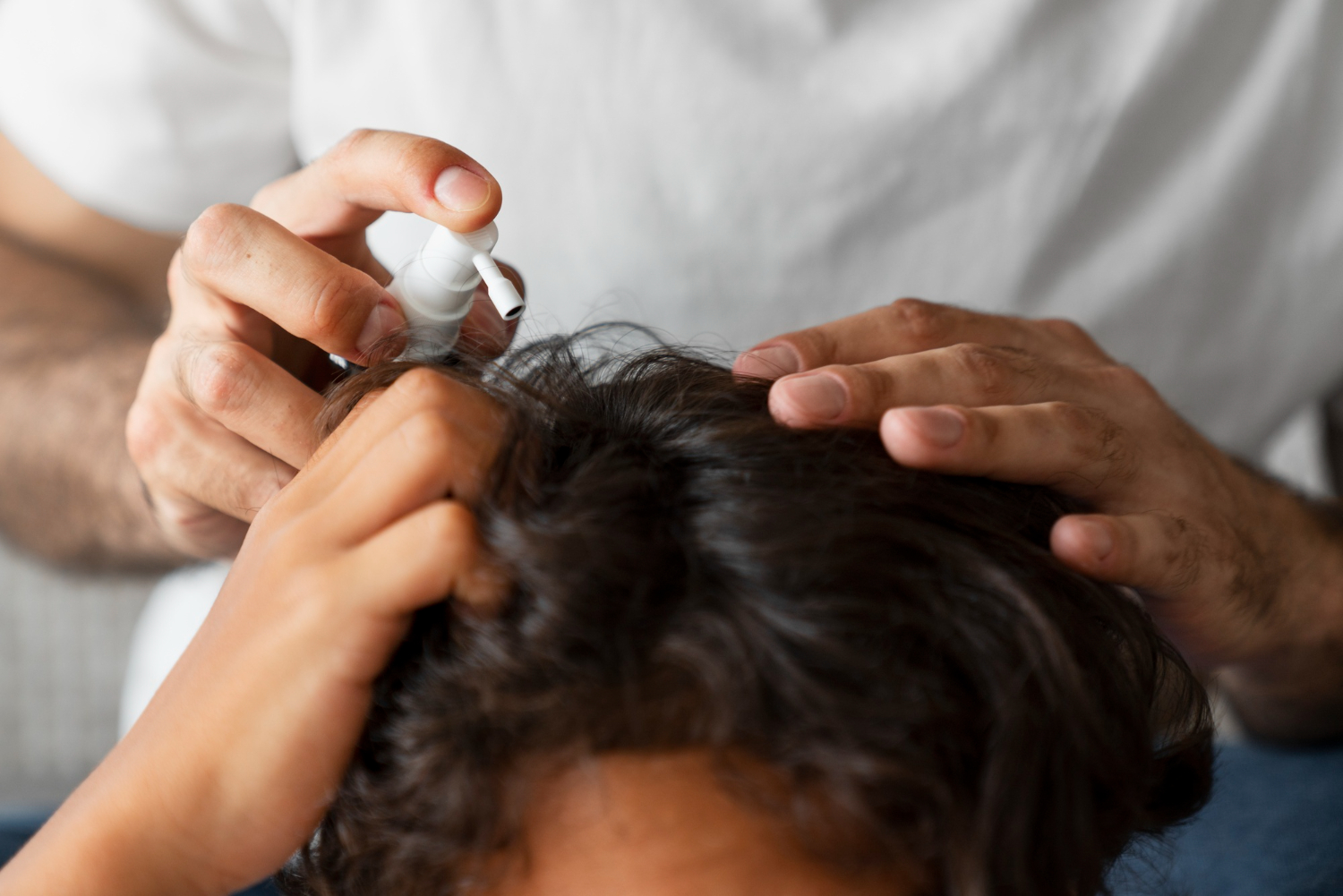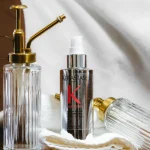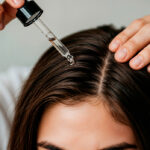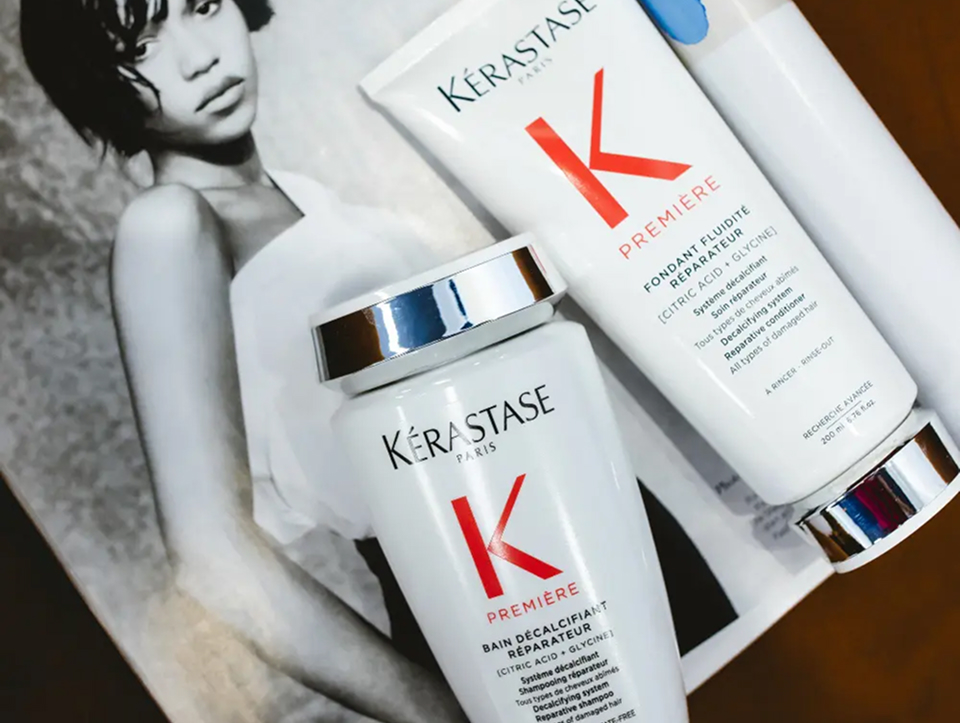Most people think of hair masks, conditioners, and heat sprays when they think about hair care, but forget the scalp, the foundation for healthy hair. To maintain scalp health, it’s just as essential to care for the roots as it is for your strands.
The problem is that ignoring your scalp care can lead to dandruff, itchiness, hair thinning, or even hair loss. At Haste Hair, we specialize in scalp treatments in Boston and have helped countless clients restore balance to their scalp.
Together, we’ll explore what causes an unhealthy scalp, how to spot it, and proven tips to maintain scalp health. By the end, you’ll know how to care for your scalp so your hair stays strong, shiny, and resilient.
Tips to Maintain Sclap Health
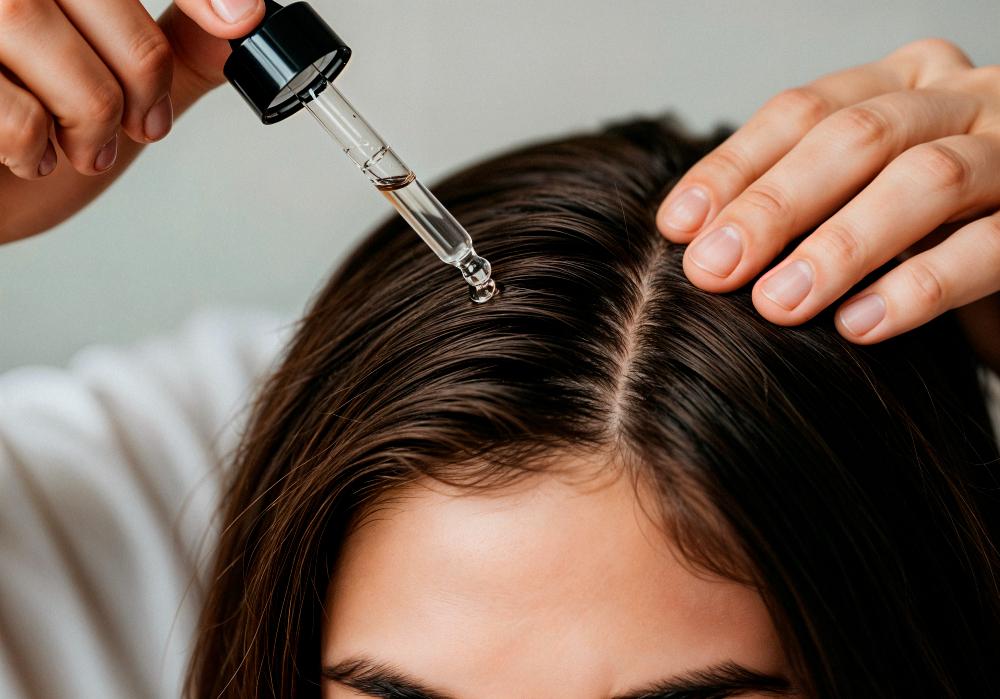
1. Know Your Scalp Type
Understanding your scalp type is the first step to maintain scalp health. Is your scalp dry, oily, or a mix? Do you experience itchiness, flakiness, or excess oil? Knowing this helps you choose the right products and treatments.
- Dry scalp: Look for moisturizing shampoos and leave-in treatments. Or check out these DIY remedies to treat your dry scalp at home.
- Oily scalp: Use clarifying shampoos to remove excess sebum.
- Sensitive scalp: Avoid harsh chemicals and fragrance-heavy products.
At Haste Hair, we always begin with a personalized scalp consultation to assess scalp condition before recommending products or treatments.
👉 Knowing your scalp type = the foundation of every good scalp care routine.
2. Create a Consistent Wash Routine
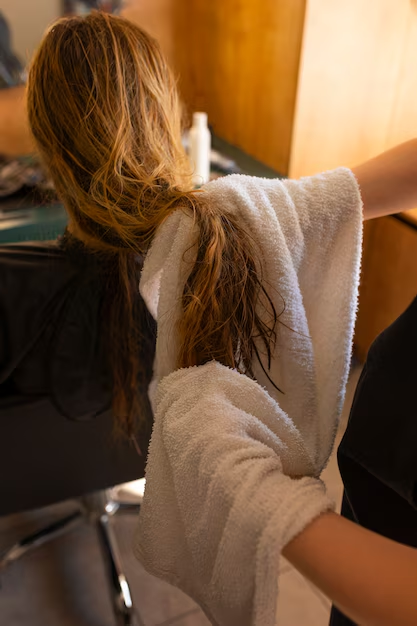
Overwashing can strip natural oils; underwashing can lead to buildup. Here’s a simple guide:
- Fine or oily hair: Wash every 1–2 days.
- Normal hair: Wash every 2–3 days.
- Curly/coily hair: Once a week or bi-weekly.
💡 Tip: Between washes, a dry shampoo can help absorb excess oil without harming your scalp.
Maintaining a consistent wash routine keeps your scalp clean but not over-dried, which is essential to maintain scalp health. Studies show that balancing wash frequency helps preserve the scalp microbiome.
3. Keep Buildup Away
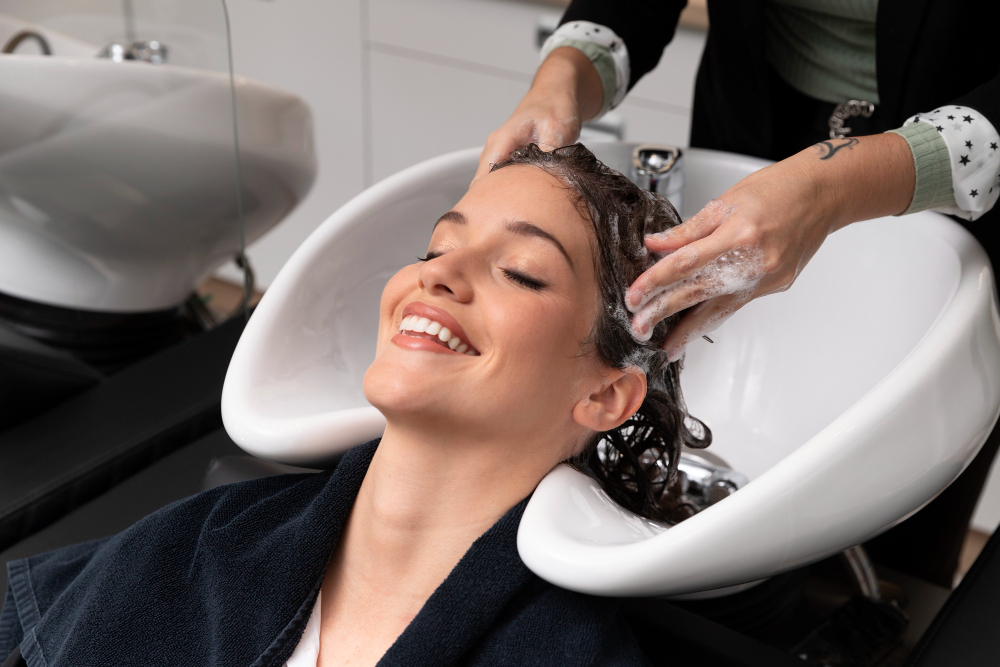
Buildup from products, sweat, and environmental pollution can suffocate hair follicles. Look for signs like itching, flakes, or greasy roots.
- Solution: Use a clarifying shampoo or gentle scalp exfoliation once a week.
- Tip: Avoid over-exfoliating; this can irritate your scalp.
Check out our Healthy vs Unhealthy Scalp Table:
| Healthy | Unhealthy |
|---|---|
| Even skin tone | Redness or irritation |
| Comfortable, no itch | Persistent itching |
| Balanced oil | Excessively dry or oily |
| Minimal flakes | Dandruff/flaking |
| Steady growth | Hair shedding |
Keeping buildup under control helps restore balance and maintain scalp health, improving hair growth and comfort.
✏️ Learn more about Hair Growth and Hair Retention
4. Massage Your Scalp

A 5-minute daily scalp massage stimulates blood flow and encourages hair follicle activity.
- Use fingertips or a scalp massager.
- Apply gentle circular motions.
- Pair with nourishing oils for added benefits.
Research shows that massage may increase hair thickness over time. This simple habit is a key step to maintaining scalp health while enjoying a relaxing self-care moment.
✨ Do you know the difference between a healthy and unhealthy scalp? Learn more about it here.
5. Hydrate Inside & Out
Hydration is crucial for your scalp. Drink plenty of water daily and eat nutrient-rich foods:
- Omega-3s: Salmon, chia seeds, walnuts.
- Vitamins: A, C, D, and E.
- Minerals: Zinc, biotin.
💡 Too much sugar can harm scalp health. Learn more here: Hair Loss and Sugar: What’s the Link?
Proper hydration prevents dryness, flakiness, and irritation, helping you maintain scalp health naturally.
6. Choose Gentle Products
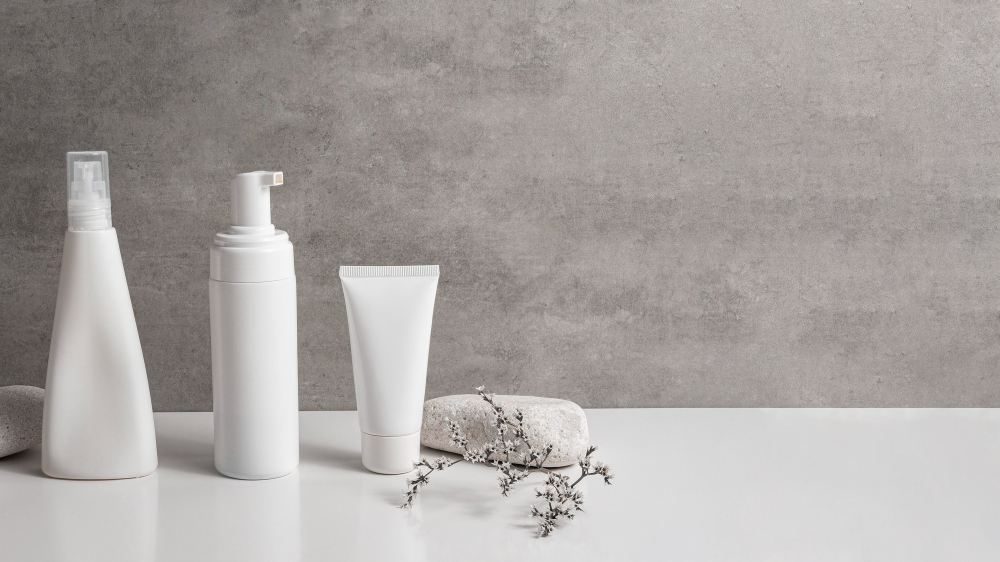
Avoid harsh sulfates, parabens, or silicones that strip natural oils. Look for mild cleansers and nourishing serums.
- Trusted brands: Kérastase for professional-grade scalp products.
- Rinse thoroughly to remove all residue.
🧴 Selecting the right products protects your scalp barrier and is essential to maintaining scalp health over time. Learn more about this in our 7-Day Scalp Detox Routine.
7. Give Your Scalp the Right Treatment

Not all scalps are the same. Treatments vary based on your condition:
- Dry scalp: Consider using leave-in moisturizers or nighttime serums.
- Oily scalp: Balancing tonics or clarifying masks.
- Thinning hair: Stimulating serums to support growth.
At Haste Hair, our professionals design treatments for your specific scalp needs, ensuring long-term results and helping you maintain scalp health efficiently.
🌿 Learn more about hair care goals for 2026
8. Limit Heat Styling
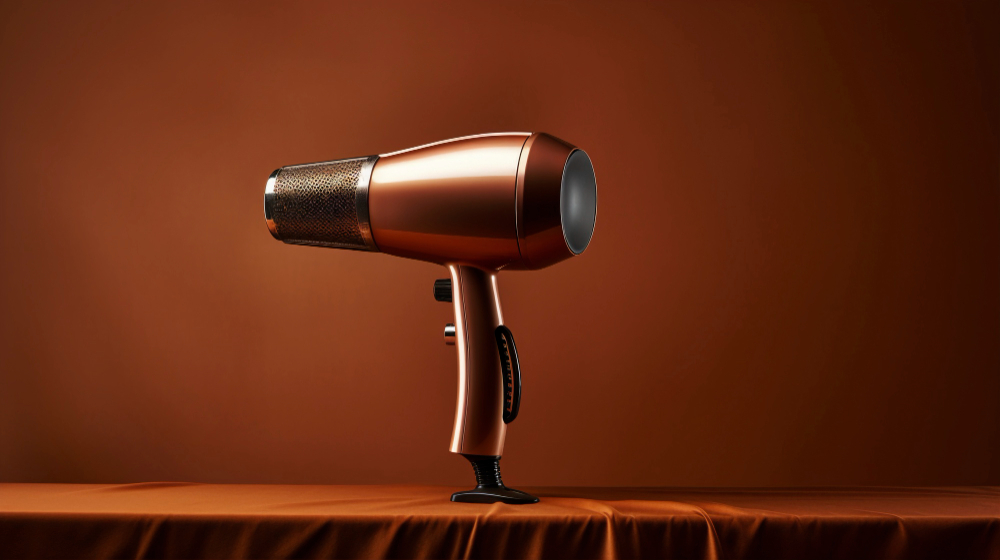
Excess heat dries the scalp, damages follicles, and accelerates hair breakage.
- Use heat protectants before styling.
- Keep styling tools slightly away from the scalp.
- Air-dry when possible to reduce exposure.
🔥 Limiting heat protects your scalp’s natural oils and helps improve scalp health over time.
9. Protect from the Sun

UV rays can damage scalp skin just like the face or body.
- Wear a wide-brimmed hat outdoors.
- Use SPF sprays or powders for exposed scalp areas.
☀️ Sun protection prevents dryness, flaking, and irritation, supporting your effort to take care of your scalp year-round.
10. Balance the Scalp Microbiome
A healthy scalp hosts a balanced ecosystem of bacteria and fungi. Disruption can lead to dandruff, itchiness, and hair thinning.
- Maintain hygiene without over-washing.
- Use gentle treatments and exfoliation.
- Eat a nutrient-rich diet to support microbiome health.
Learn more about professional care at Haste Hair’s scalp treatment process. Keeping your scalp microbiome balanced is critical to maintaining scalp health.
Why Is Scalp Care Important?
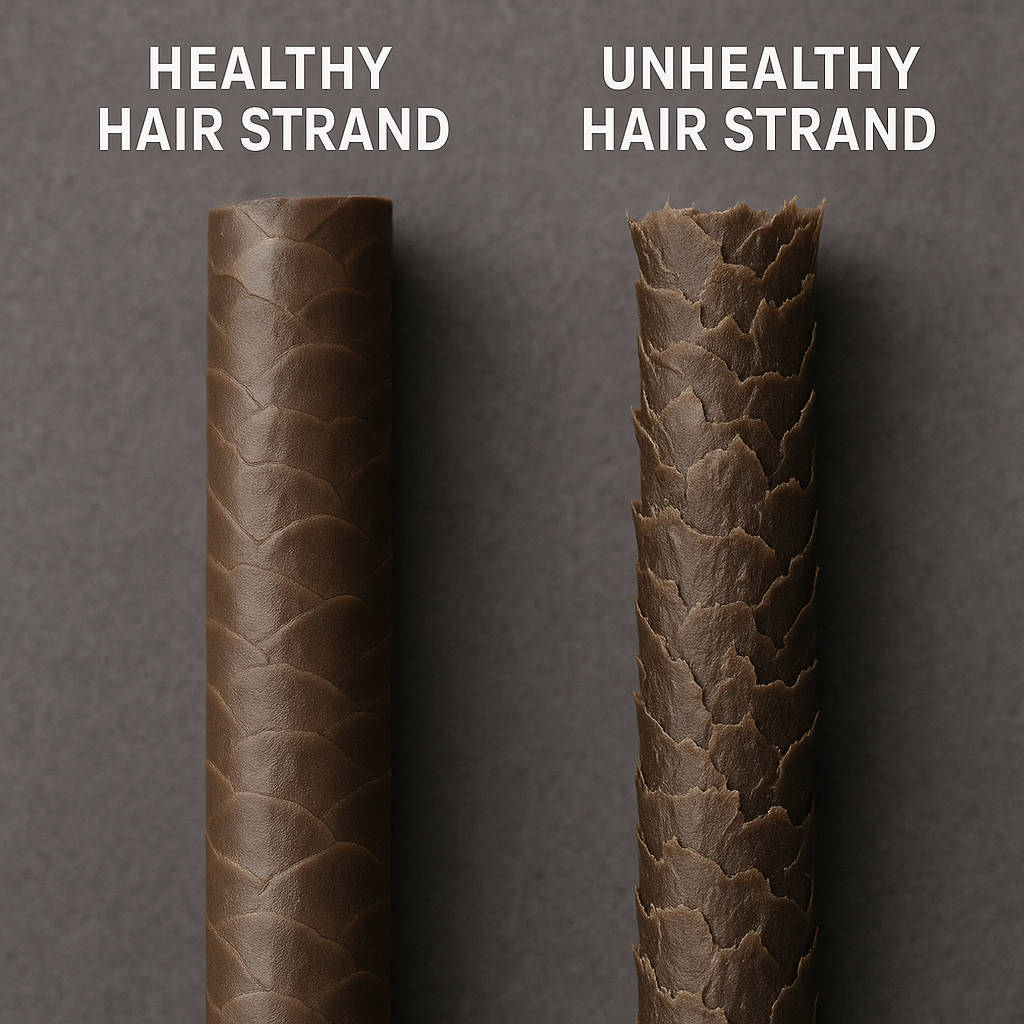
Think of your scalp as the soil where your hair grows; if the foundation isn’t healthy, your strands won’t thrive. To maintain scalp health, you need to create the right environment for hair follicles to function correctly.
Here’s what happens if scalp care is ignored:
- Irritation and flaking – A dry, unbalanced scalp can cause itchiness, redness, and dandruff, which may lead to inflammation.
- Premature hair thinning – A buildup of oil, dirt, or dead skin can clog follicles, reducing nutrient delivery and slowing down hair growth.
- Loss of shine and manageability – When the scalp microbiome is out of balance, hair may look dull, frizzy, or harder to style.
✨ But it’s more than just appearance. Research shows that a healthy scalp microbiome directly supports stronger, denser hair growth. Taking care of your scalp isn’t just a cosmetic step, it’s a long-term investment in hair strength, confidence, and overall well-being.
How to Fix an Unhealthy Scalp
If your scalp is already showing signs of distress:
- Switch to a gentle, sulfate-free shampoo.
- Exfoliate weekly with a mild scrub.
- Stay hydrated and eat nutrient-rich foods.
- Avoid scratching or picking.
- Book a professional scalp treatment.
If symptoms persist, consult a dermatologist.
Scalp Health Tips 2025
Scalp care is evolving fast. New trends include:
- Microbiome shampoos that balance scalp bacteria.
- Scalp serums with niacinamide & peptides for soothing.
- At-home exfoliation tools for easy maintenance.
Stay ahead by combining timeless basics with modern innovations.
Wrap-Up: The Secret to a Healthy Scalp
When it comes to maintaining scalp health, your scalp does a good job at it. Still, certain factors, whether external or internal, can interfere with your scalp’s ability to thrive. Following the best scalp care and setting practices using the right products can protect your scalp.
Still, if you’re unsure about maintaining scalp health and which treatments to use, visit us. We offer scalp therapy in Medford, MA. Book an appointment now, and our professional stylist will help you create a tailored scalp therapy plan.
FAQ
How do you maintain a healthy scalp?
Wash according to your scalp type, hydrate, exfoliate gently, and use scalp-friendly products. Avoid overwashing, harsh chemicals, and excessive heat.
What are the signs of an unhealthy scalp?
If your scalp itches, is red, flakes, hurts, has dandruff, or experiences excessive hair loss, it may indicate an unhealthy scalp.
What does a healthy scalp look like?
Like the rest of your skin, your scalp will have an even tone without discoloration, patches, or spots. Healthy hair growth without thinning or loss is another sign of a healthy scalp.
Why is scalp care necessary?
Because your scalp is the foundation for healthy hair growth, a neglected scalp leads to irritation, shedding, and dull hair.
How can I improve scalp health naturally?
Drink water, eat scalp-friendly foods, massage your scalp, and use gentle, plant-based products.
Is a hair spa harmful?
Not if done professionally! A scalp treatment at Haste focuses on restoring balance, not damaging the scalp.

